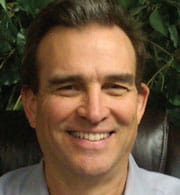Six Quick Tips for Do It Yourself Landlords
By: Bob Machado
President and owner of HomePointe Property Management18NOV
 If you manage your own properties you probably do so to save money and to make sure the job gets done the way you want it done. Whether you have one rental house or lots of houses and apartments, you would be wise to stay educated. As a property manager of all types of rentals over the past 30 years, I offer you a few quick tips to both educate you and to pick your interest in obtaining more details. Judges are not too keen on giving landlords a break just because they are ignorant of the law. Also, lost revenue because you are not following the latest techniques can never be recovered.
If you manage your own properties you probably do so to save money and to make sure the job gets done the way you want it done. Whether you have one rental house or lots of houses and apartments, you would be wise to stay educated. As a property manager of all types of rentals over the past 30 years, I offer you a few quick tips to both educate you and to pick your interest in obtaining more details. Judges are not too keen on giving landlords a break just because they are ignorant of the law. Also, lost revenue because you are not following the latest techniques can never be recovered.
Tip #1: Have written rental standards and stick to them. You should have a plan as to who qualifies before marketing your vacancy. What is the minimum income you will accept? What is the minimum credit? What about rental/ownership history? Treat everyone the same. Putting your standards in writing will protect you from a Fair Housing Complaint.
Tip #2: Have a lease and addenda that work for you and that is legal. Use a lease for the state where you have your property. You can obtain leases from the local housing association. This is preferable than from the internet or from a local stationary store (do those still exist?). Make sure the lease covers things such as mold, bed bugs, repair responsibility, lease length, late charges, who is living there, and not allowing subletting.
Tip #3: Prepare your vacancies to be both eye appealing and to meet your state and local habitability standards. You must provide a secure place, no broken windows or roof leaks, working electricity, plumbing, and working appliances that you provide. You should also make sure the walls both inside and out either are newly painted or they should look like they are newly painted. The better the condition you start with, the better the condition will look when you get the property back. If you stuck to your written rental standards, you will have a better chance of keeping the property in top shape.
Tip #4: Choose what amenities to provide based on your market and property type. Most single family homes do not need a refrigerator provided, but you might want to consider it if you have a very high end home. While apartments pretty much require a refrigerator be provided, duplexes do not. I would suggest you provide a garbage disposal and dishwasher if possible. I do not think you should provide a washer or dryer in most rentals.
Tip #5: Inspect the property during the tenancy. We suggest you get inside at least annually. Many jurisdictions make you register your rental (be sure to know this and comply) with the local building department and force you to inspect annually. If this is the case or not, you should get inside annually to check for leaks, caulking in the bathrooms and kitchen, roof leaks, trees that need trimming, gutters, and flooring condition. Some tenants do not want you to come inside, and that is a red flag that indicates you must get inside. We have heard of grow houses and hoarders that can ruin a house in a short amount of time. Be sure to get into all rooms in the home while you check for mold, leaks, and damage. While there, be sure to check and install if indicated the latest smoke and CO detectors.
Tip #6: At the time of the annual inspection you should also take a look at the rental market conditions and compare to the rent you are getting. You do not want to fall behind and you do not want to surprise your tenant three years later with a big make up increase. Better to give a 2-3% increase annually, even if it is only $15 or $20 or $30 per month. This will keep the tenant calling you for repairs, which is a good thing, and keep you in a position to pay for those repairs. I have seen tenants be reluctant to call in for repairs because they fear the landlord will be inclined to raise the rent. That is not a good situation. Keep your tenant at market rent and your property will be better for it.
These are just six tips for improving your bottom line. If you have a passion for property management I am sure you are implementing these tips and more. If you don’t have a passion, call a local property management that does and let their passion make you more profitable.

Bob Machado
Bob Machado is President and owner of HomePointe Property Management which is located in Sacramento, CA serving the greater Sacramento Region from three offices. He graduated from UC Berkeley “With Distinction” (1977) and has a degree in Economics. He is both a Certified Property Manager (CPM) and Master Property Manager (MPM) and HomePointe is a Certified Residential Management Company (CRMC). Bob holds a California Brokers License (00691121).
Bob is a founding member of the local chapter of the National Association of Residential Property Managers (NARPM), as was its’ first president (1992). In addition to local leadership, Bob is past national president of NARPM (1996-97) and served on the national board from 1992-1998. Bob is a nationally qualified and recognized speaker for the association and teaches various property management topics and has authored several property management courses.











 Accessibility
Accessibility